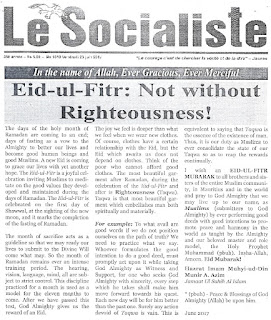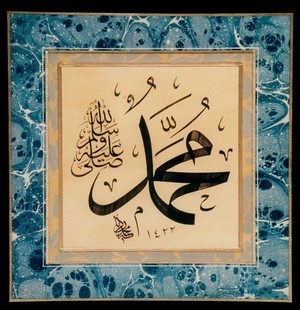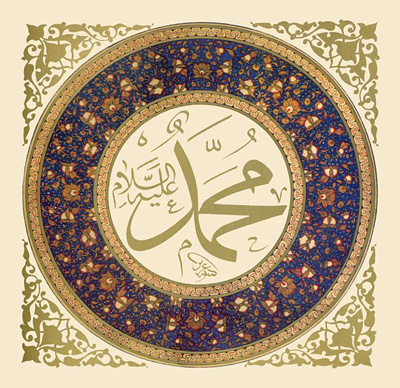RIGHTEOUSNESS & SUBMISSION TO ALLAH
Who is a Mumin (Muslim)? How to become a good Muslim? These
are questions which Allah answered in several of the verses of the Quran and which
are also found in the Hadiths of the Messenger of Allah (pbuh). Allah says in
the Quran:
Righteousness (Devotion to Allah) is not that you turn your faces toward the
east or the west,
but (true) righteousness is (in) one who believes in Allah,
the Last Day, the angels, the Book, and the prophets and gives wealth, in spite
of love for it, to relatives, orphans, the needy, the traveller, those who ask
(for help), and for freeing slaves;
(and who) establishes prayer and gives Zakah; (those who) fulfil their promise
when they promise; and (those who) are patient in poverty and hardship and
during battle.
Those are the ones who have been true, and it is those who are
the righteous/God-fearing. (2: 178)
Righteousness which comes from the heart and which is a
vital instrument to obtain true piety (Taqwa)
is found in obedience to Allah in all the commandments which He has established
for His male and female servants on earth. Be them men or women, young or old,
all have duties towards Allah, such duties which they have to respect so that
they may become true servants of Allah.
The Holy Prophet Hazrat Muhammad (pbuh) has said:
“How
wonderful is the situation of the believer, for all his affairs are good. If
something good happens to him, he gives thanks for it and that is good for him;
if something bad happens to him, he bears it with patience, and that is good
for him. This does not apply to anyone but the believer.” (Muslim)
But I have to mention also that there are stages in the
types of believers, like Hazrat Muhammad (pbuh) expounds to us: “A strong
believer is better and more beloved to Allah than a weak believer”.
Despite the fact that a believer remains a
believer as he believes in Allah and all that which He has prescribed, but not
all believers 100 % succeed in establishing/put into practice all that which
Allah has ordained him to do. There are even some who go on to lose their faith
while believing that they were doing a good deed while they were on the
contrary attracting the displeasure of Allah upon them. There are some who do
good deeds, partly for the eyes of Allah, and partly for the eyes of people
(ostentation). Therefore, this finally annuls the deed because of the weakness
displayed in the fulfilment of that good deed.
Verily, someone, especially someone who
says that he is Muslim, who says that he believes in Allah and all that which
Allah has told him to believe (i.e., belief in Allah, His angels, prophets,
divine books, destiny and the rewards and punishments of the afterlife) shall
not succeed in anything if he does not submit to the will of Allah. The
devotion which he says he has (towards Allah) shall become useless if he does
not follow that devotion/righteousness with sincerity of the heart.





























